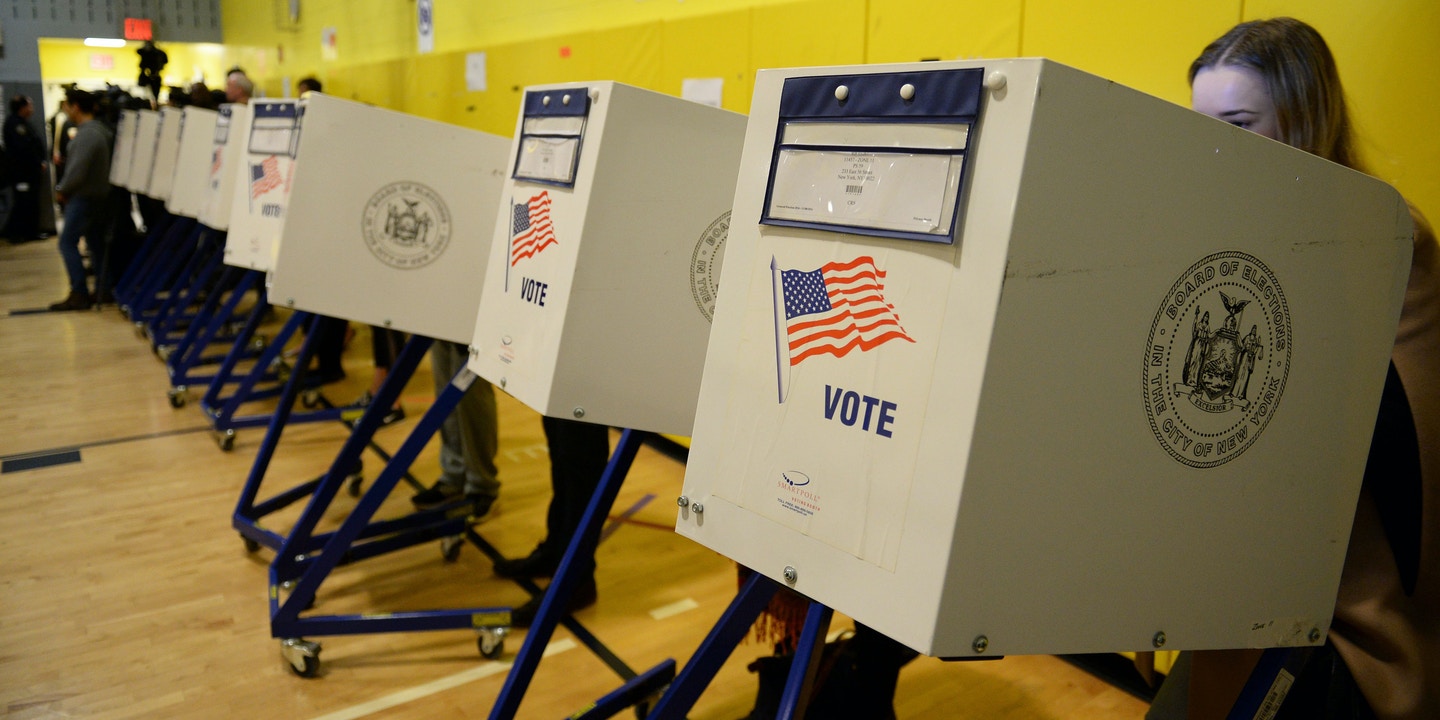RIO DE JANEIRO, BRAZIL – (Opinion) About the only thing this gringo can reliably say about the US electoral system is it’s a horrific mess.
In fact, it is almost unfathomable. Any effort to explain its intricacies and idiocies here would be as likely to succeed as my trying to explain quantum theory to my Golden Retriever.

The American voting systems (plural because in addition to Federal, there are a gazillion State and municipal systems) make a bad joke of the concept of democracy. Consistent and unsuccessful efforts over the years to unscramble these eggs has caused an increasingly brutal war between those who believe that everyone should have a fair and trouble-free vote and those who demand that voting be as difficult as possible and assuredly favor white native-born citizens.
The latest battle can be dramatically seen front and center in the current US Congress fight over ‘House Resolution 1’, (HR1) ‘For the People Act’, a Democratic initiative and Biden priority which touches on virtually every aspect of the electoral process and assures a consistency of laws across the country. It is a battle that despite its high-sounding rhetoric, has little or nothing to do with voting ‘process’.
Rather it is a mirage covering over the heart of the national dysfunction which is tearing America apart at its roots. Those roots are endemic white racism in all its forms, rising on a wave of Republican-generated anger, resentment, and grievance, too long simmering but only recently boiling over.
Frederick Douglass may have proclaimed in May 1865: “Slavery is not abolished until the Black man has the ballot,” but up until now, more than a century later, white men have done everything possible to prevent ‘others’, predominantly Afro-Americans and Latinos, from freely casting their votes. That’s no surprise: those votes could spell mortal danger to the continuation of the white privilege of historic America.
In the unlikely event HR1 makes its way through the Senate, even lumbered with many weakening amendments, it should have significant and moderating influence on the more than 250 bills introduced in 43 states since the Biden/Trump November election. These proposed new laws limit access to the ballot box through initiatives to reduce or eliminate absentee ballots and early voting. among other restrictions.
As the ‘Financial Times’ points out, they are designed to “suppress the vote … to neutralize efforts championed by Republicans in states such as Georgia to tighten ballot access by forcing individuals to bring identification to the polls and ban early voting on Sundays.”
All this seems crazy when compared to Brazil, where every one of the 147 million people over 18 are required by law to cast a ballot. They have the freedom to nullify their ballots if they wish (and given the often-abysmal panel of candidates, some 20 percent regularly do) but Brazilians must show up and vote.
Compulsory voting has the advantage of tightly focusing the attention of the candidates on the needs of all the voters, not only those in carefully chosen geographies with appropriate skin colors. It also means that the poorer and less educated segments of the population vote without having to overcome the obstacles often put in their way. It’s not perfect, but it is clearly better than the US present system.
Moreover, to the best of my knowledge, unlike the US where not masking or social distancing against the pandemic has been weaponized and is considered by some selfish and mindless populists a statement of individual freedom, there is no faction here that considers this voting requirement anything more than good sense.
It is also good sense to have voting system of proven integrity and efficiency which can readily handle an election of comparable size to the US. While considering HR1 in the US Senate, perhaps senators could turn their eyes towards Brazil for some useful lessons.
“Like all Brazilian elections,” wrote ‘The Intercept’, “the October 7 [2018] national vote was held on Sunday, the day the fewest number of people have to work, ensuring maximum voter participation. Polling closed at 5 p.m. All of the votes were fully counted, and all the results fully known, by 8:30 p.m. that night.”
There were no claims of “widespread fraud” and certainly no attack on Oscar Niemeyer’s iconic NaTional Congress building in Brasilia. However disappointed voters may have been with the result – and there was a second round of voting because none of the candidates received the required 50% of valid votes in the first round – a highly unpopular ex-army officer, Jair Bolsonaro, became and remains President without the shouts of ‘fraud’ in the background.
How hugely different this is from the recent US elections. As ‘The Intercept’ continued: “There were no lingering unknown outcomes, weeks of uncounted votes, widespread claims of voter disenfranchisement, multi-hour lines that spread around blocks, or obstacles to registering.”
If the right to vote and have that vote fairly counted is the bedrock of any democracy, what is all the US fuss about?
It is clearly about the difficulty of society adjusting to a post-pandemic world. Real or imagined grievances can be amplified from a single Tweet, then forwarded and trended over social media to millions of followers.
Lonely in the isolation of lockdowns, anger, and fear in all sectors of the population invite belief in, or even adherence to, wild conspiracy theories. These provide a growing cohort of disenchanted citizens with easy answers to difficult questions and a sense of community, shared belonging and objects of blame for the uncertainties of today’s world.
Only two impediments prevent the US from adopting a rational, fair and functional electoral system.
The first is the election process, which is (comparatively) easy to fix. The second is the entrenched historic white supremacy racism that feeds conspiracy-led insurrection and threatens the very existence of e pluribus unum and the country’s future as a democratic republic.

